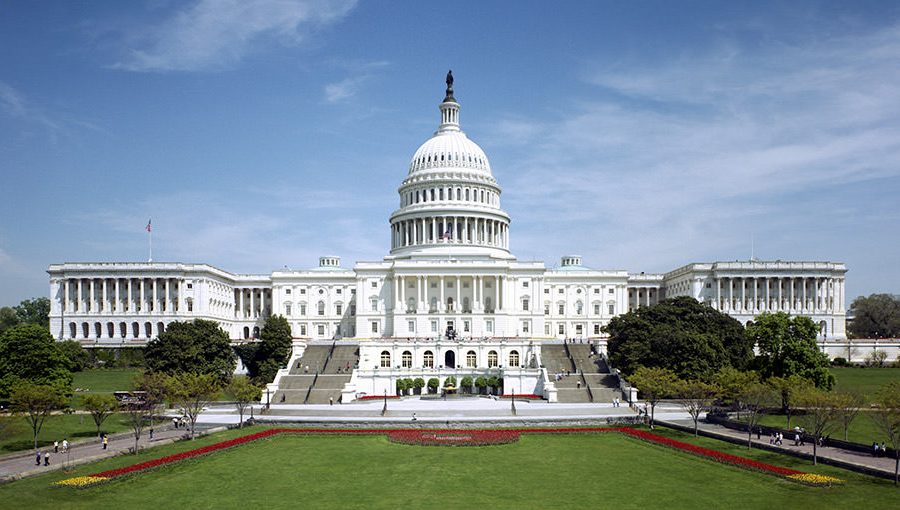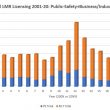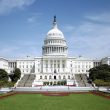U.S. House votes for repeal of T-Band spectrum auction, measure to halt ‘raiding’ of 911 fees
Members of the U.S. House of Representatives yesterday overwhelmingly approved legislation that would repeal a law requiring the FCC to auction public-safety T-Band spectrum and would seek to prohibit the practice of state and local governments using revenue from 911 fees for purposes other than 911.
House representatives on Wednesday voted 410-5 to approve H.R. 451, the “Don’t Break Up the T-Band Act” sponsored by Rep. Eliot Engel (D-N.Y.). Language in the bill would abolish a mandate that the FCC auction T-Band airwaves—pockets of spectrum from 470 MHz to 512 MHz used to support public-safety LMR systems in 11 metropolitan markets—in a bidding procedure that would begin early next year.
In addition to repealing the T-Band auction mandate, H.R. 451 was amended to include language that is designed to discourage state and local government entities from utilizing 911 fee revenues from phone bills to fund non-911 initiatives. Known as “raiding,” this practice of redirecting revenues from 911 fees has been done in multiple states for years, particularly to help balance budgets during difficult economic times.
With the passage of H.R. 451, the bill is expected to be considered by the Senate. Multiple Beltway sources told IWCE’s Urgent Communications that they believe there is support in the Senate to repeal the T-Band auction mandate, but none were willing to speculate on the timing such approval.
FCC commissioners have approved initial steps to auction the T-Band spectrum, but there is almost unanimous agreement—from the FCC, the Government Accountability Office (GAO) and public safety—that such an auction should not be conducted. Both FCC Chairman Ajit Pai, a Republican, and FCC Commissioner Jessica Rosenworcel, a Democrat, have describe the mandated T-Band auction as a “bad idea.”
Indeed, there is no available spectrum in several of the affected markets where the T-Band LMR systems—some of the largest and most important in the country—could be located, according to the GAO report on the matter. Even if this issue somehow could be resolved, many analysts question whether the patchwork of T-Band spectrum would generate enough revenue to pay for the relocation of the public-safety LMR system—a cost of “roughly $6 billion,” according to Rosenworcel.
Public-safety representatives have opposed the auction of the T-Band spectrum from the day Congress passed the 2012 law, which is part of the same the Middle Class Tax Relief and Job Creation Act that established the FirstNet Authority and allocated 20 MHz of 700 MHz broadband spectrum to the organization. T-Band airwaves are used by more than 900 public-safety agencies to support LMR networks in 11 of the largest U.S. metropolitan markets.
Repealing the T-Band auction mandate would grant clarity to public-safety agencies using the spectrum and allow them to expand their LMR systems, if desired—something the FCC has not allowed in many years. These same benefits also would be realized by business-industrial licensees that use T-Band spectrum that have been subject to the same FCC limitations, even though they are not even mentioned in the 2012 law.
Congress passed the T-Band auction mandate in February 2012, about 10 months before the FCC’s narrowbanding mandate—mandating that LMR systems below 512 migrate from 25 kHz channels to 12.5 kHz channels—became effective. The FCC ruled that T-Band licensees would not have to adhere to the narrowbanding rules, because they presumably would be vacating the spectrum within a decade under the existing law.
One lingering question is: If T-Band licensees are allowed to remain on the spectrum, would the FCC require them to meet the narrowbanding mandate that was enforced throughout the rest of the country? For the New York Police Department, narrowbanding its system was going to cost at least $150 million at the time of the original deadline—money that would come from local taxpayers, if it was funded as most narrowbanding initiatives were.
As approved by the U.S. House of Representatives, H.R. 451 included an amendment that is designed to discourage state and local government from using revenues from 911 fees for non-911 purposes, typically to help balance budgets. Known as “raiding,” this practice is most common during difficult economic times—a condition many state and local jurisdictions are facing this year in the wake of economic slowdowns caused by measures that were designed to prevent the spread of COVID-19.
Both Congress and the FCC—led recently by FCC Commissioner Michael O’Rielly—previously have denounced the practice, but those efforts have had little practical impact. For instance, threats to pull federal 911 funding from jurisdictions that raid 911 revenues are almost meaningless, because Congress has approved very little 911 funding during the past two decades, sources have noted for years.
In H.R. 451, a different approach is proposed to discourage the raiding of 911 revenues.
“Any State or taxing jurisdiction identified by the Commission … as engaging in diversion of 911 fees or charges shall be ineligible to participate or send a representative to serve on any committee, panel, or council established under … the Middle Class Tax Relief and Job Creation Act or any advisory committee established by the Commission [FCC],” according to the text of the bill.
This portion of H.R. 451 also would establish a new interagency strike force—known as the “Ending 9–1–1 Fee Diversion Now Strike Force”—that would determine whether a jurisdiction improperly used revenues from 911 fees. In addition, this strike force would be responsible for conducting a study to determine the best measures the federal government can take to end 911 fee diversion.















